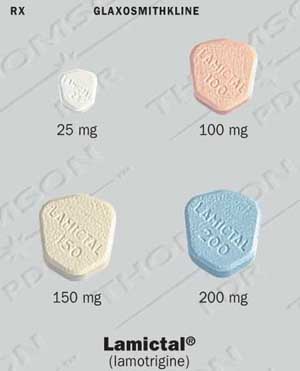
In late 2013, the Pakistan Journal of Medical Sciences, a bi-monthly peer-reviewed medical journal, published a case report of Stevens Johnson Syndrome linked to Lamotrigine.
Lamotrigine is usually sold under the trade name Lamictal. Lamictal was originally developed as an anticonvulsant to help control seizures in epileptics. However, many drugs that act on the brain are found to help regulate other disorders, and Lamictal has since been approved as a mood stabilizer for patients suffering from bipolar disorder. Above and beyond this, research has suggested it can help treat clinical depression, and the drug is frequently used off-label as an antidepressant. However, serious concerns about Lamicital’s safety have emerged, including concerns about Lamictal-induced Stevens Johnson Syndrome.
Stevens Johnson Syndrome, or SJS, is an autoimmune reaction. This means that the patient’s own immune system, which usually attacks and controls invading germs to prevent disease, goes haywire and attacks the patient’s own organs and tissues. In the case of Stevens Johnson Syndrome, the immune system attacks the skin.
SJS symptoms typically include generalized flu-like symptoms which escalate to a painful skin rash with sores, blisters, and ulcers. SJS symptoms can even be fatal, as the reaction can damage the lungs or other internal organs. Even then, survivors of Stevens Johnson Syndrome may face a lifetime of complications, including blindness and disfiguring and disabling scars.
Stevens Johnson Syndrome is somewhat rare, making it hard to study. While researchers have many remaining questions about SJS, it is known that nearly all cases can be linked to drug exposure, including Lamictal.
In this case, the patient developed Stevens Johnson Syndrome roughly three weeks after he started taking Lamictal. In the case report, the authors mention that the majority of cases of Stevens Johnson Syndrome are caused by drugs, though some are caused by infections, and rarely by cancers. In this case, a 56-year-old female who had a history of depression and anxiety issues was prescribed Lamictal in the hopes of improving her condition. She had previously been hospitalized after attempting suicide. Antidepressants had been tried, but weren’t working on their own, so physicians attempted to combine them with Lamictal. Initially, Lamictal seemed to be the missing piece of the puzzle, and her symptoms improved. But then, at the three week mark, she began to experience SJS symptoms.
Sixteen days into her Lamictal treatment, the patient developed swelling of her eyes, face and lips. Conjunctivitis, a swelling of the membranes around the eye, and related SJS symptoms may cause blindness. Thereafter, her mouth and skin developed the characteristic SJS rash. Four days after the first SJS symptoms manifested, she sought treatment and was admitted into the ICU. The doctors took her off all of her medications and in roughly two weeks, she more-or-less recovered. The case report did mention some lingering problems with her eyes, but a full recovery was expected in a matter of weeks.
Several weeks of ICU care is actually somewhat mild compared to Stevens Johnson Syndrome cases reported in the media. Many stories involve children and adults who die from SJS symptoms, either from damage to the lungs or complications from the skin damage. Those who survive potentially face permanent blindness. Recovery may take months or, less commonly, years.
Some SJS lawsuits have alleged that hospitals have failed to properly diagnose and treat SJS quickly, worsening SJS side effects. Other lawsuits have been filed against the makers of drugs associated with Stevens Johnson Syndrome, like Lamictal. These SJS lawsuits typically allege that drug makers have not done enough to warn and protect the public from Stevens Johnson Syndrome.
Do YOU have a legal claim? Fill out the form on this page now for a free, immediate, and confidential case evaluation. The Stevens Johnson Syndrome attorneys who work with Top Class Actions will contact you if you qualify to let you know if an individual lawsuit or class action lawsuit is best for you. [In general, SJS lawsuits are filed individually by each plaintiff and are not class actions.] Hurry — statutes of limitations may apply.
ATTORNEY ADVERTISING
Top Class Actions is a Proud Member of the American Bar Association
LEGAL INFORMATION IS NOT LEGAL ADVICE
Top Class Actions Legal Statement
©2008 – 2025 Top Class Actions® LLC
Various Trademarks held by their respective owners
This website is not intended for viewing or usage by European Union citizens.
Get Help – It’s Free
Help for Victims of Stevens Johnson Syndrome
If you or a loved one were diagnosed with Stevens Johnson Syndrome (SJS) or toxic epidermal necrolysis (TEN) after taking a prescribed or over-the-counter medication, you may be eligible to take legal action against the drug’s manufacturer. Filing an SJS lawsuit or class action lawsuit may help you obtain compensation for medical bills, pain and suffering, and other damages. Obtain a free and confidential review of your case by filling out the form below.
An attorney will contact you if you qualify to discuss the details of your potential case at no charge to you.
Oops! We could not locate your form.












